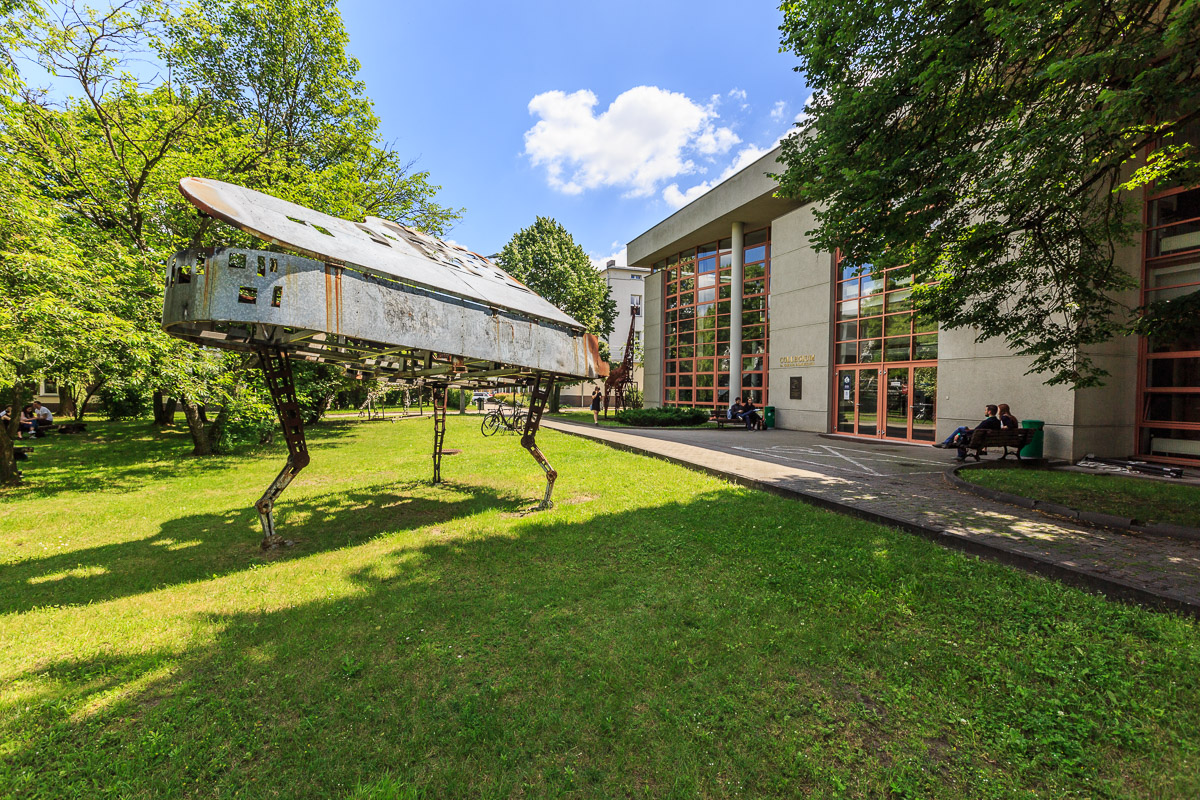Faculty of Sociology

The Faculty of Sociology of Adam Mickiewicz University in Poznan is a part of the School of Social Sciences. Our history is over 100 years old - in 1920 the first Polish sociological research center was established in Poznan. Drawing on such a long tradition makes it easier to learn what is new and unexplored and keep abreast of the changing world.
The Faculty is located on the Ogrody Campus. It is a trendy place among students as it is rich in greenery and well connected with other parts of the city. The Botanical Garden is located nearby.
Academic and public activities
Research activities in the Faculty focus on such topics as: urban space; family and its contemporary transformations; everyday life; social aspects of climate and environment; visual culture and art; corporeality and sport; marginalization and social exclusion; poverty; social resourcefulness; old age; disability.

A commitment to the local community is essential in the research activities. The Faculty collaborates with institutions from the social environment, whose representatives offer students practical knowledge. Among them are: Poznań City Hall, Zamek Cultural Center, Poznań County Family Assistance Center, Poznań Regional Center for Social Policy, Youth Vocational Counseling Center, and the Florian Znaniecki Science Foundation.
Students and lecturers of the Faculty have been repeatedly recognized for their scientific achievements, receiving prestigious awards and scholarships: from the Prime Minister, the Minister of Science and Higher Education, the Foundation for Polish Science, the Kulczyk Family Foundation, the Polish Sociological Association, or the UAM Foundation.
Studies that develop imagination
The Faculty offers first (BA) and second degree (MA) full-time studies in sociology and social work. Both faculties have been positively evaluated by the Polish Accreditation Committee, which assesses the quality of education at Polish universities. Graduates of master's studies can continue their education at the Doctoral School of Social Sciences UAM.
Studies at the Faculty of Sociology develop social sensitivity and social imagination. Graduates acquire substantial knowledge and soft competencies, which allows them to shape their professional development path independently. At the same time, they gain the ability to take a critical look at social reality.
- Sociology - studies about social life and its changes
Sociology studies what society is and how it works. It looks at how society changes and seeks ways in which it can be transformed. In sociology, we show how to ask questions about the social world and seek answers. We teach how to use the tools to explore and change society in all its diversity.
The sociology degree program offers a choice of thematic tracks. In the first degree program, these are: market research - marketing - consumer behavior; culture and media; applied sociology in the public sphere. On the second degree: social innovation; relations in organizations; local management.
In addition to thematic modules, the study program consists of canonical subjects, field exercises, diploma seminars, foreign language classes, and physical education classes. An important element is a rich choice of faculties and detailed sociology (e.g., youth subcultures, sociology of the nation, design thinking).
Graduates of sociology studies can pursue careers in such fields as: market research; non-governmental organizations; cultural institutions; marketing; media.
- Social Work - studies about professional assistance for others
Social work combines reflection on the nature of social problems and social challenges in the modern world with the analysis of how to provide professional service to individuals, families, groups, and social collectives in difficult life situations. It allows people to create space for development and, together with them, designs social changes.
Studying social work enables to solve individual and social problems using interdisciplinary knowledge. The key element of the studies is cooperation - within the framework of hospitalization and professional and specialized practice - with many social assistance institutions, e.g., adoption centers, social welfare homes, addiction therapy centers. In the master's program, students can choose one of two specialization paths: social work design or social services management.
Graduates are prepared to work in all types of social institutions and in social organizations, foundations, associations dealing with social problems, both in the public sector (government and local government administration) and in the third sector (non-governmental organizations). After graduation, it is possible to work in: centers for family assistance; social assistance centers; care and educational institutions; social assistance homes; sanatoria; etc.
Visit the Faculty website and to observe the profile on Facebook.








